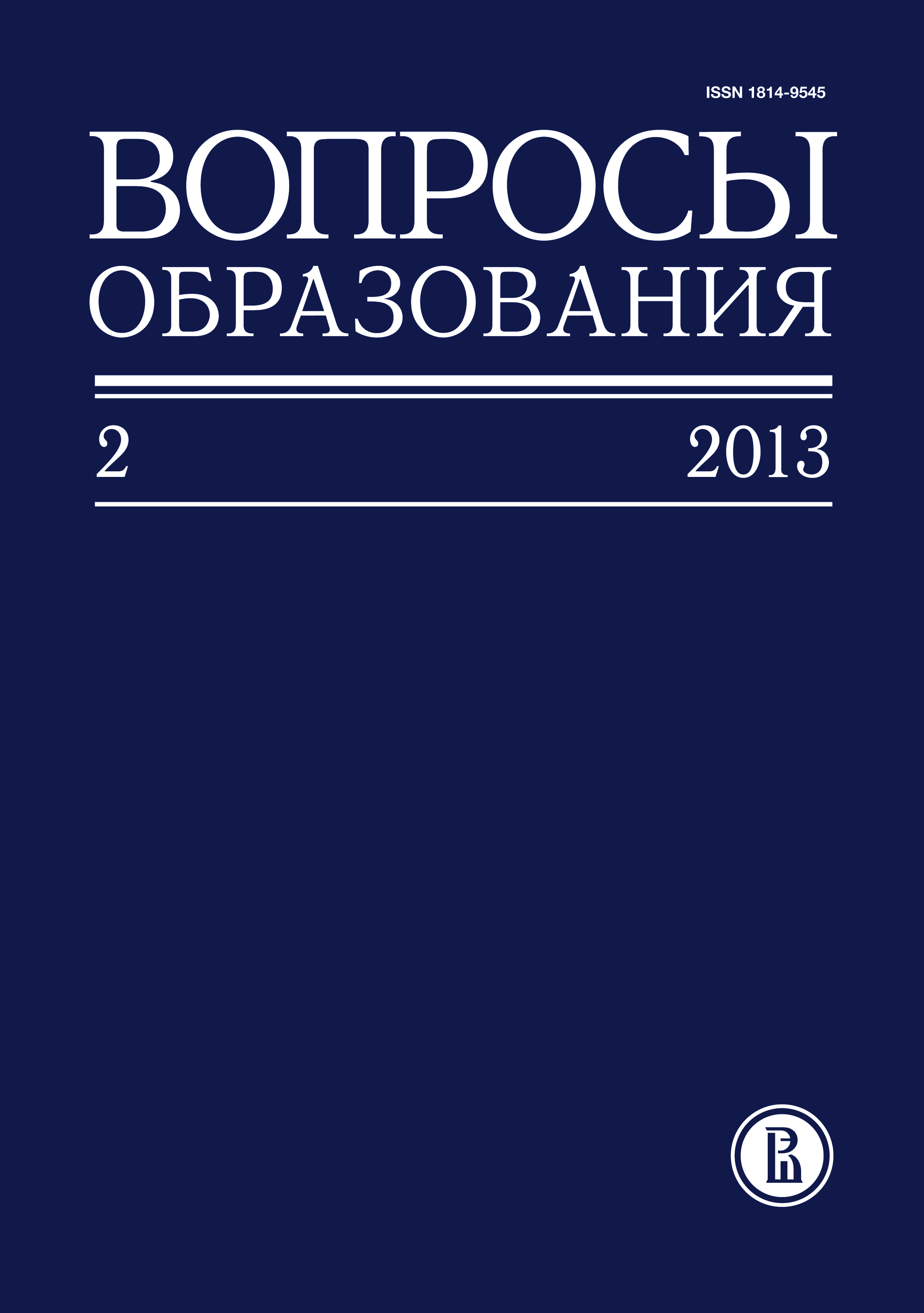Relationship between Parental Education, Educational Trajectories and Achievements of Schoolchildren in the Republic of Tatarstan
Abstract
Edgar Demetrio Tovar García, research fellow at the Education Quality Monitoring Center, Education Development Institute, National Research University — Higher School of Economics, Moscow, Russian Federation. Email: beno09@yahoo.com
Due to national and cultural diversity of Russia, it has been decided to analyze the parental education effect locally, in the Republic of Tatarstan, and to find out whether the effect is determined by other independent values such as gender, ethnicity, financial situation, cultural capital, social capital, educational resources, non-cognitive skills, health, and peers’ attitude towards education.
Cross tabulation and correlation analysis of questionnaire data have revealed a positive though insignificant interdependence between parental education and high-school students’ educational trajectories and academic achievements. Gender and ethnic group have proven to be the best predictors of academic progress; in particular, female students have better performance than males and Tatar-speaking students outperform Russian speakers. Educational trajectories depend mostly on gender (20% more female students plan to get higher education).
Regression and discriminant analyses have shown that, to predict academic progress, one should take into account education of parents (mostly fathers) and other independent variables: cultural capital, non-cognitive skills, peers’ attitude towards education, health, ethnicity and gender. Higher education prospects are determined by education of parents (mostly fathers). However, performance and gender variables also contribute to the statistics (high performance gives more chances for higher education; female students are more likely to get higher education than male students).
Based on the data obtained, it is recommended to adjust the education strategy in Tatarstan in order to improve academic performance in two heterogeneous groups — male students and Russian-speaking students. Weak connection between student performance and parental education eliminates the need to level down the effects of poor parental education.









